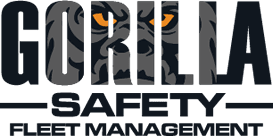
Since 1998, the Commercial Vehicle Safety Alliance (CVSA) has inspected 3.4 million commercial brakes with one goal in mind: keeping trucks, their drivers, and others on the road safe. Improperly installed and badly maintained brakes reduce the braking capacity of trucks and increase the stopping distances needed out on the road. With two separate events each year, the CVSA works to get bad brakes off the road.
Unannounced Brake Check Day
Each year the CVSA holds an unannounced brake check event around North America. This year it was on May 4, 2016. Inspectors worked in 31 U.S. states and Canadian provinces and territories and inspected more than 6,000 commercial vehicles. Over the course of the day, a lot of vehicles were placed out of service for violations.
- 4% for brake violations
- 9% for other types of violations
Overall, brake violations are the reason for most vehicles being placed out of service. In the course of the inspection, CVSA also found that anti-lock braking system (ABS) violations occurred, as well.
Over 90 percent of air-braked trucks, 87 percent of hydraulic-braked trucks, and 85 percent of air-braked trailers all required ABS based on their manufacture date. Nearly 10 percent of air-braked trucks and hydraulic-braked trucks requiring ABS had violations. Almost 20 percent of trailers that require ABS were found with violations.
ABS systems were checked because of their importance in helping trucks remain in control when wheel slip becomes possible during braking. ABS also reduces the chances of jackknifing on the road and helps prevent rollovers. If a truck is equipped with ABS, and most of them likely should be, they should also be serviced at regular intervals to prevent violations.
Brake Safety Week
During CVSA’s Brake Safety Week, September 11 through September 16, inspections will be held across North America to identify out-of-adjustment brakes, brake-system violations, and ABS violations. This week is part of the organization’s annual outreach efforts and enforcement campaign to improve commercial motor vehicle safety for everyone.
Inspectors will look specifically at a truck’s braking systems. They’ll check the components to look for loose or missing parts as well as air and hydraulic fluid leaks and worn linings, pads, drums, rotors, and other faulty parts. ABS malfunction indicator lamps will be checked. Inspectors will also measure the pushrod stroke on applicable vehicles. Any trucks with defective or out-of-adjustment brakes will be placed out of service. In the 10 areas using performance-based brake testing (PBBT), vehicle braking efficiency will also be tested.
Don’t let unannounced brake checks and Brake Safety Week put your trucks out of service. Make sure all of your vehicles are up-to-date on brake service and other maintenance. The Gorilla Safety system allows you to set alerts so that you know when each truck needs to go in for service. The worst time to be reminded is when you get the call that an inspector just placed one of your rigs out of service.

